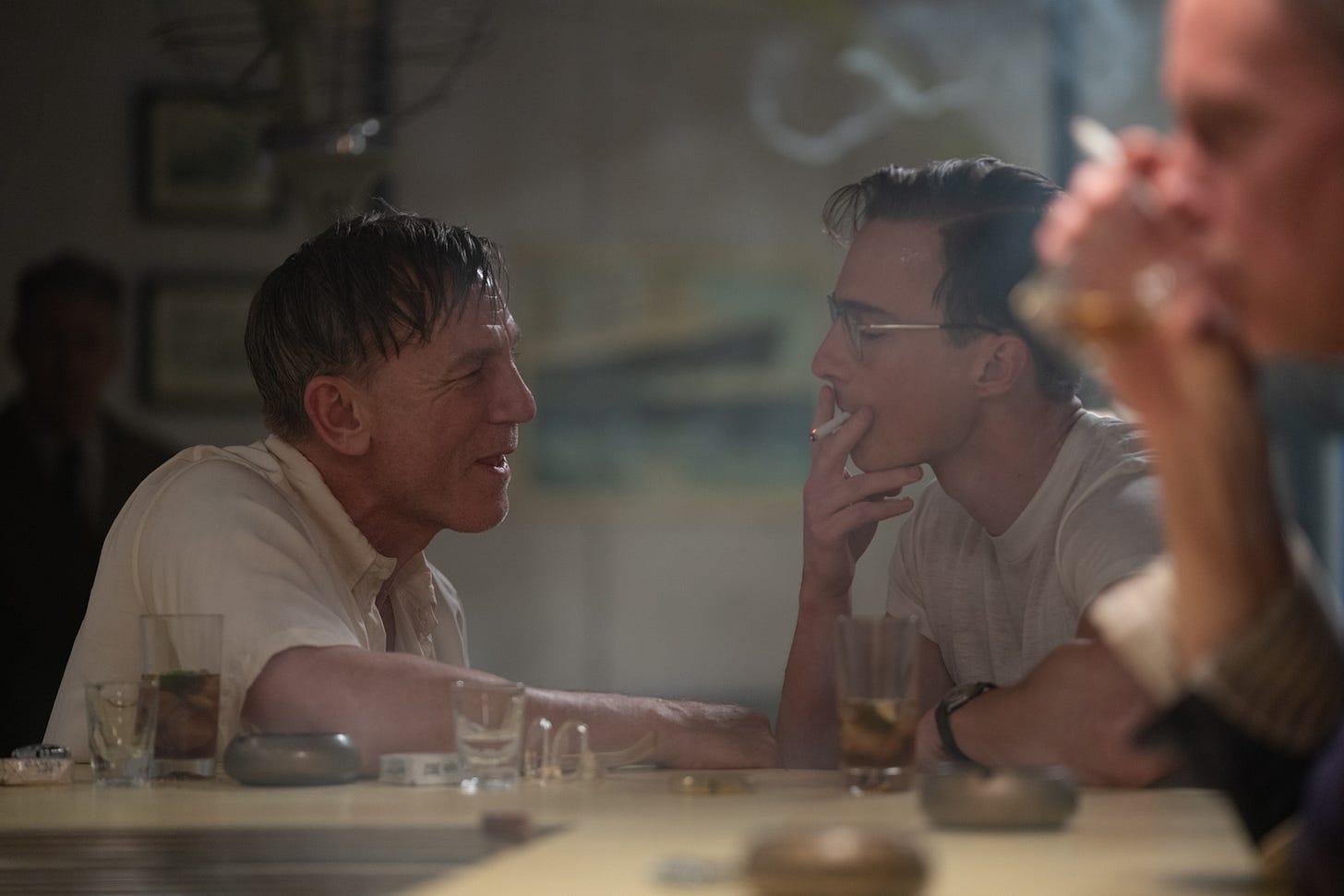Luca Guadagnino’s adaptation of William S. Burrough’s second novel, Queer, begins, shall we say, peculiarly. Sinéad O’Connor’s haunting cover of Nirvana’s “All Apologies” scores overhead shots of what we soon realize is Burroughs’s own writing space, every object (a typewriter, drug paraphernalia, hastily scattered pages, an abundance of handguns) alluding with cringey literalness to the Beat Generation author’s thorny mythos.
“Everyone is gay,” per “All Apologies,” and it quickly becomes clear that Guadagnino and screenwriter Justin Kuritzkes are content to stay on the surface of that knotty lyric and plenty more besides. They would seem to think that plumbing depths is for snootily cultured queens. Queer prefers to oafishly stick, and not always unentertainingly so, to mincing façades, beginning with Daniel Craig’s performance as Burroughs avatar William Lee.
His bruiser face tarted up with dorky specs and his growly voice tending ever so slightly toward a lisp, Craig sashays his way around a fever-dream vision of Mexico City created on the backlots of Rome’s Cinecittà Studios. There’s some charm to the balls-out artifice on display; even the driblets of sweat on people’s bodies are beguilingly overdone in a Querelle-lite sort of way. And Craig certainly gives his all to Guadagnino’s vision, channeling aspects of his fashionably bisexual Knives Out crime-solver Benoit Blanc, in addition to his pathetically degraded boytoy from the 1998 Francis Bacon faux-biopic Love Is the Devil, as he labors to convey Lee’s destructive infatuation with the opaque, icily handsome Eugene Allerton (Drew Starkey).
Allerton is based on Burroughs’s actual acquaintance and object of obsession Adelbert Lewis Marker. Though when the novel was finally published in 1985 (it was written between 1951 and 1953), the author himself noted in his introduction that his doomed wife, Joan Vollner, was the spirit animating much of its themes and characters. Even this should be taken with a healthy grain of salt given the Beat tendency toward serpentine self-mythology. Guadagnino nonetheless adopts the Joan-as-tragic-muse legend as gospel, a not-indefensible choice as anyone who’s seen David Cronenberg’s Naked Lunch can attest. Though the longer this distended 135-minute feature goes on, the more the paucity of the director’s perspective manifests itself.


